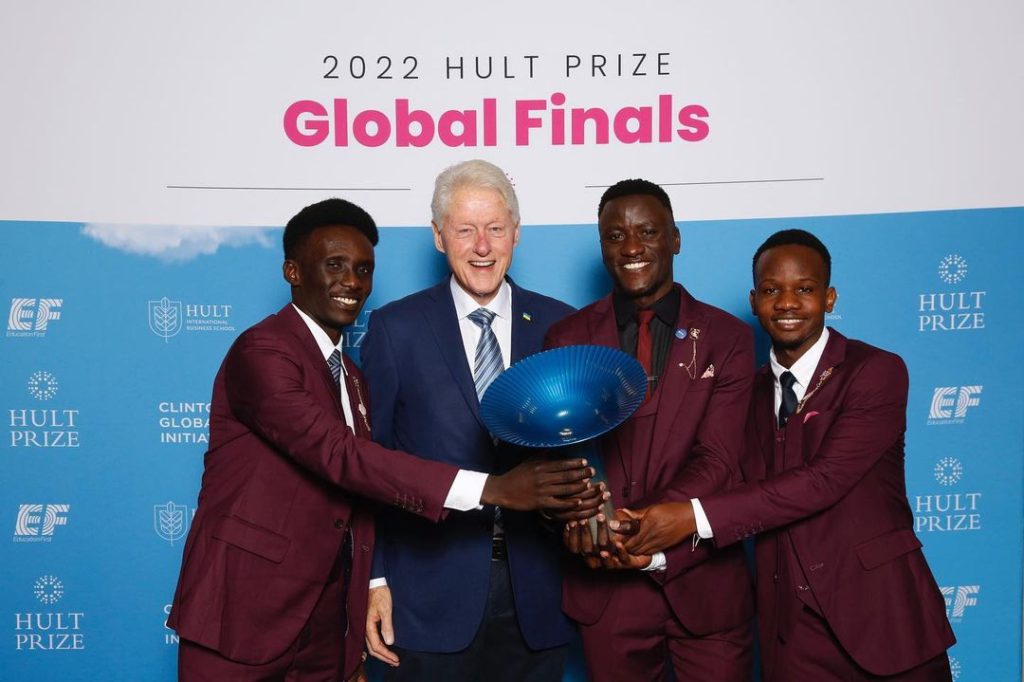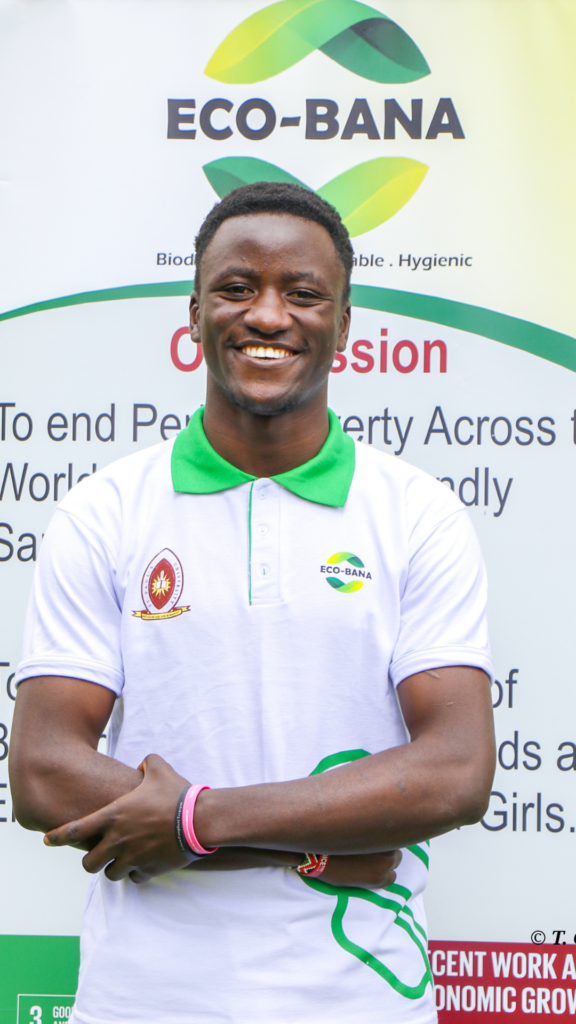Enactus students from St. Paul University, Kenya, are the 2022 Hult Prize recipients for their social enterprise Eco-Bana. The renowned Hult Prize challenges young people around the world to solve the planet’s most pressing issues through social entrepreneurship, and the award is $1 million USD in seed capital to help the winning team launch a social enterprise.

The St. Paul University students first conceived of Eco-Bana in 2020 as a project for Enactus, a global experiential learning program that supports young leaders to use business for positive impact on people, planet, and prosperity by advancing one or more of the United Nations’ 17 Global Sustainable Development Goals. Enactus St. Paul University President Lennox Omondi recognizes Enactus as a catalyst for Eco-Bana, writing that “it [Enactus] motivated us many times to be able to identify problems and use the problems as solutions.” In the instance of Eco-Bana, the project members — Kylie Muthoni Ogolla, Dullah Shilton, Brian Ndung’u, Emanuel Omondi, and led by Lennox Omondi — wanted to develop a sustainable solution to the problem of “period poverty.”
Enactus motivated us many times to be able to
identify problems and use the problems as solutions.Eco-Bana Co-Founder and CEO Lennox Omondi
Over 500 million women worldwide, including many in Kenya, and even a member of the Eco-Bana team, cannot afford menstruation products. Having to forego sanitary pads in lieu of necessities such as food causes many women to miss school or work to avoid public humiliation. Armed with the knowledge of Design Thinking and Green and Circular Economies, the Enactus team developed a reusable and affordable sanitary towel from banana fibers and cloth. They also established a workforce of women and refugees to produce the biodegradable, eco-friendly, and hygienic menstruation solution. Thus, Eco-Bana was born.
“The Eco-Bana team has achieved one of our ultimate goals for Enactus students – to have their project supported by a globally-recognized enterprise accelerator so that it can become a thriving business that continues to solve social and environmental problems for years to come,” says Enactus President and CEO Robyn Fehrman. She adds, “I am deeply proud of Eco-Bana’s success and the continued impact it will have on the exigent crisis of economic disparity for women in Africa, especially related to period poverty.”

In 2020, Eco-Bana was runner up in the Enactus Kenya National Competition. Undaunted by the second-place designation, the team registered for the Hult Competition, winning first in Africa and then worldwide on 20 September 2022. Imbued with hope and positivity, Eco-Bana strives to be the best producer of biodegradable sanitary pads and empower all women and girls. While winning the Hult Prize is certainly a feather in the cap for the Eco-Bana team, the opportunity to improve lives with the $1 million seed money is the real motivation.
Eco-Bana is already expanding its impact. Kenyan President Ruto announced during Kenya’s 59th Jamhuri Day celebrations his intent to work with the Kenyan Minister of Education and Eco-Bana to provide free biodegradable sanitary pads to all Kenyan schools.
More about Eco-Bana’s positive impact is available on their website: ecobana.co.ke.


